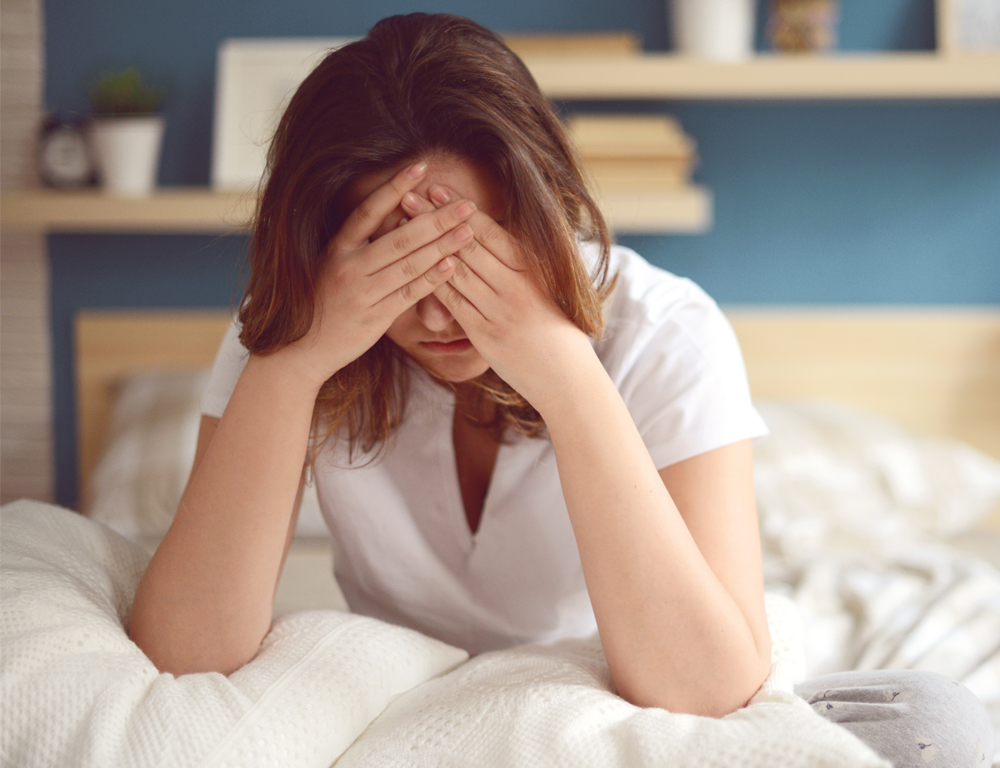The Medical Minute: Working through life’s daily stress

Stress affects most Americans at one point or another.
Although some people are genetically more susceptible to the stressors of daily life than others, most could benefit from learning how to lower that stress before it negatively affects their physical and mental health.
Julie Radico, a psychologist and behavioral scientist at Penn State Health Milton S. Hershey Medical Center, said the American Psychological Association’s most recent survey on stress in America found that stress is on the rise nationwide, and that a big part of Americans’ stress is the country’s political climate.
The key, though, to keeping stress at bay, she said, is to turn “What ifs” into “To-dos.”
“If you spend a lot of time on unproductive worries, we tend to get stuck and feel helpless, which creates more stress,” she said. “Consider instead if there is something you can do about it or a part of it that you can control and make better, and then put that on your to-do list.”
Some people may cope with stress by diving in and attacking a problem, while others may be more contemplative and plan out an approach. Still others may feel lost and need support to reach out and figure out the first step.
Radico encourages those who have a lot of “what ifs” weighing on them to reach out to a therapist whose skill set is helping work through such challenges. “It can be hard because people often feel isolated, but you don’t have to do it alone,” she said.
Peter Rainey, a behavioral scientist with Penn State Health Medical Group in State College, teaches residents how to diagnose and treat mental illness and often runs wellness programs for physicians.
He said the stressors he sees fall into three main categories–stress outside the home, stress inside the home and past family challenges.
Stress outside the home might come from the country’s political climate, commuting, work or school. Stress inside the home arises in relationships with romantic partners, family members or roommates. Past family challenges, struggles or traumatic experiences can also rear their heads.
“The good news is that we know things that help with stress,” Rainey said.
Evidence has shown that mindfulness and strong relationships with others can help squash stress.
“That’s why couples go on dates and girlfriends get together to talk,” he said.
Eating a healthy diet and getting enough sleep and exercise have also been proven beneficial.
Radico talks a lot with her patients about practicing self-care – doing things to stay energized and relaxed. That might include engaging in a favorite hobby, getting a massage or spending time with people you care about. “Your mental health is a key component of your life,” she said.
Rainey likens stress to water contained by a dam. If the water level exceeds the height of the dam, you have to either build the dam higher or let water out. “If you can leak it out consistently, you’re less likely to overflow.”
Working to modify your thought patterns and how you view stressful situations can also help.
“If you can be intentional and choose to focus on areas where you can make a difference, you’re more likely to change your perception of what is stressful,” Rainey said.
Learn more:
- The Medical Minute: Stressed out? Give meditation a try
- The Medical Minute: Stressed out? Tips for taking control
The Medical Minute is a weekly health news feature produced by Penn State Health. Articles feature the expertise of faculty, physicians and staff, and are designed to offer timely, relevant health information of interest to a broad audience.
If you're having trouble accessing this content, or would like it in another format, please email Penn State Health Marketing & Communications.
